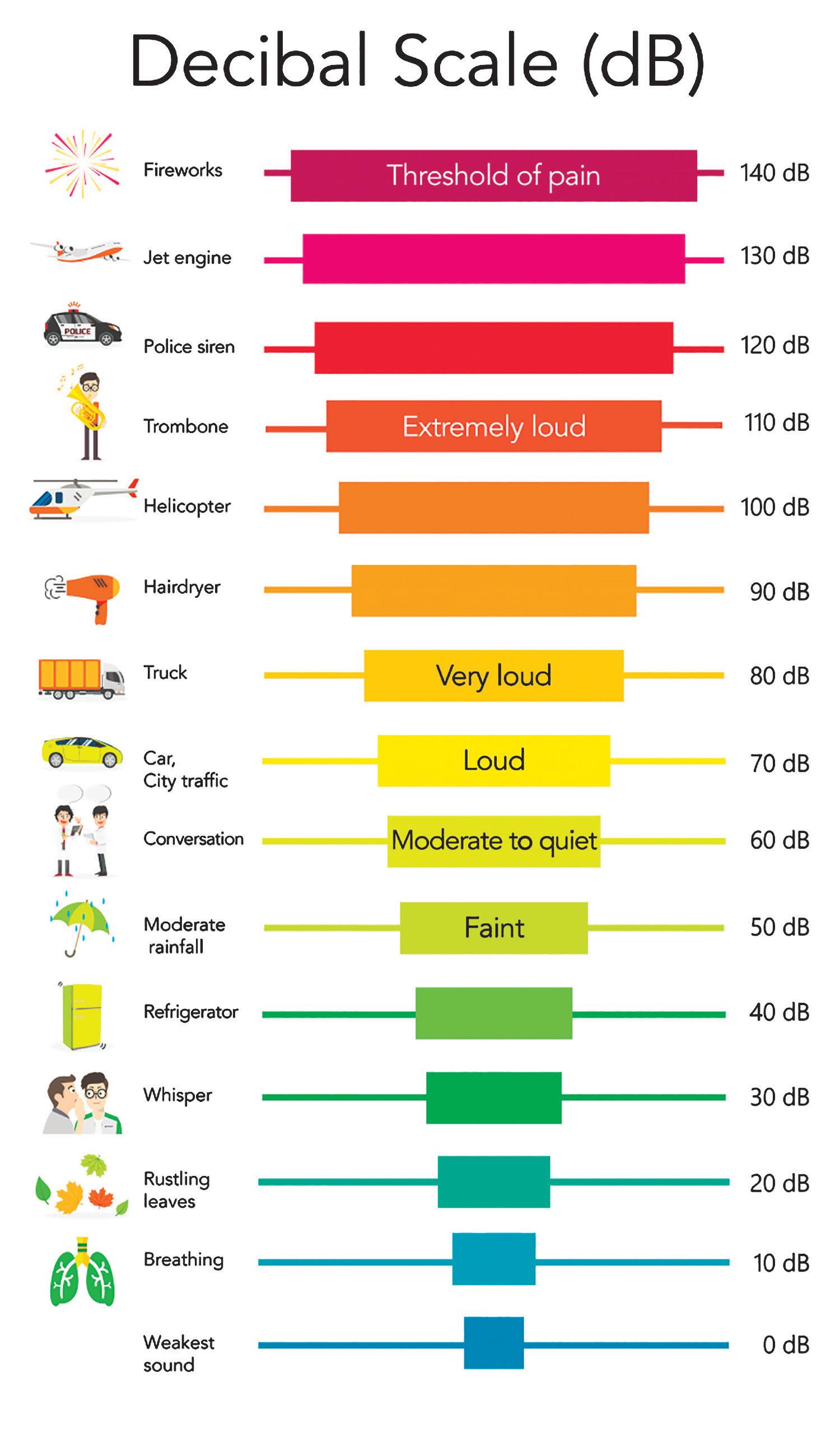
2 minute read
HEARING FROM THE EXPERT Tips for preventing and detecting hearing loss
By Abigail Blonigen
“Hearing is something that people often don't think about because it's invisible,” said Dr. Jonathan Gervais, audiologist at Hearing Wellness Center.
The need for awareness around hearing issues is why May is Better Hearing Month. According to the National Institute on Deafness and Other Communication Disorders, one in eight people above the age of 12 has hearing loss in one or both ears.
Age is a significant factor in hearing loss, with only 2% of adults aged 45 to 54 having disabling hearing loss as compared to 25% of those aged 65 to 74 and 50% of those 75 and older.
Because of this, Gervais recommends adults receive a baseline hearing exam by the age of 40. This helps patients and providers catch and treat signs of hearing loss early on.

Proper treatment for hearing loss not only improves day to day life and social function for the individual, but it may help ward off memory loss as well.
“Hearing loss and memory are very strongly linked to each other,” Gervais said, referring to a Johns Hopkins study that revealed mild hearing loss as doubling one’s risk for dementia.
Hearing aids are the primary treatment for hearing loss, however there are also online listening programs that can help train the brain to listen, focus, and communicate better. Gervais said these programs are best suited for those who may not need hearing aids quite yet or as a treatment in conjunction with hearing aids.

Early signs of hearing loss may include misunderstanding conversations, repeatedly asking people to repeat themselves, always thinking people are mumbling, having a hard time hearing in noisy environments like restaurants, or having a frequent buzzing or ringing in the ear(s).
While hearing loss can be genetic, it can also have environmental causes. Gervais recommends veterans, people who work in loud environments, and those who listen to loud music or frequented loud concerts in their youth to get their ears checked out.
In terms of prevention, Gervais said, “Treat your ears like they’re gold.”
While doing anything noisy, such as snowblowing, lawn mowing or even vacuuming, Gervais recommends wearing ear plugs or ear muffs to protect the ears from the sound.
“It’s not just necessarily how loud the noise is but, it’s also how long you’re around it,” he said. “If you’re mowing your lawn once a week for 20 minutes each time, the damage starts to add up over time.”
Gervais, who has dealt with hearing loss from a fairly young age and wears hearing aids himself, encourages folks to find a provider they are comfortable with and ensure that their hearing aids are properly fitted.
Family and friends generally notice hearing loss in a loved one before they do, so if the people in your life are voicing their concerns, it never hurts to get it checked out.

Blonigen is a Duluth freelance writer.
What is diabetic eye disease?

The term “diabetic eye disease” refers to a group of eye conditions, such as diabetic retinopathy and diabetic macular edema, that can affect people with diabetes. The National Eye Institute notes that all forms of diabetic eye disease can potentially cause severe vision loss and even blindness. However, the NEI says vision loss can be prevented or delayed if diabetes patients take their medications as prescribed, stay physically active and eat a healthy diet. Seeking timely treatment by consulting a physician the moment they notice changes in their vision, however insignificant those changes may seem, is another way for diabetes patients to protect themselves against vision loss. It’s especially important that diabetes patients heed that advice, as the NEI notes that vision lost to diabetic eye disease is sometimes irreversible. It’s also important that diabetes patients know that help could be on the way, as the NEI is conducting and supporting research to find better ways to detect, treat and prevent vision loss in people with diabetes.






